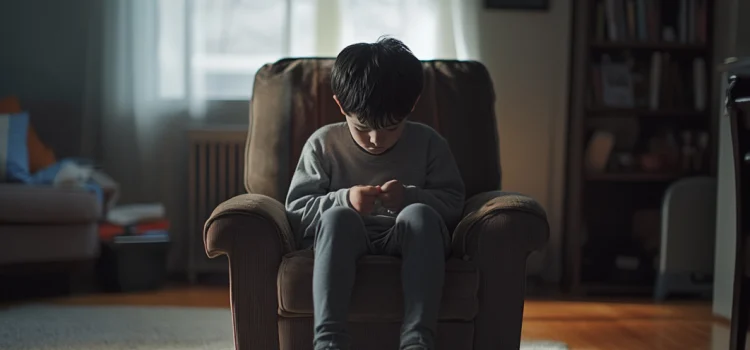
What’s the difference between punishment and discipline? Which one should you be using on your children?
While often confused, discipline and punishment are not the same thing. Discipline is the act of teaching your child whereas punishment is making your child suffer for a mistake. Punishments are unhelpful and can oftentimes make situations worse.
Continue reading for a deeper look into punishment vs. discipline when it comes to parenting.
Mentally Strong Parents Don’t Mistake Punishment for Discipline
No matter how reasonable your expectations of your children are, there will be times when your child doesn’t live up to them. That’s when it’s crucial to impose appropriate consequences, with emphasis on “appropriate.”
Psychotherapist Amy Morin says that mentally strong parents make sure those consequences discipline their children instead of just punishing them. The key difference between punishment vs. discipline is that discipline teaches children how to do better, whereas punishment just makes them suffer. For example, if your child gets angry and yells at you, an appropriate consequence might be to send them to their room until they calm down—this teaches them that they can walk away from upsetting situations instead of lashing out and making things worse. On the other hand, an unhelpful punishment might be to take away something that makes them happy, like their favorite toy; far from teaching your child how to handle their anger, this approach will just upset them even more.
(Shortform note: We can illustrate this “punishment versus discipline” principle by taking a look at the large body of research showing that rehabilitating criminals is much more effective than simply punishing them. Studies have shown that prisoners who benefit from programs such as counseling and skills training are much less likely to reoffend than those who don’t have access to such programs. This is something of an extreme comparison—Morin is discussing a misbehaving child, not a potentially dangerous criminal—but it highlights the point that punishment alone is ineffective. That’s why the author is urging you to, instead, find consequences that teach your child the skills they need to do better next time.)
The author adds that effective discipline uses positive consequences (rewards) as well as negative ones. So, while you might have to send your child to their room for yelling at you, make sure to also praise them when they handle their anger more appropriately, such as by walking away to settle down. Some other appropriate rewards might include giving your child an allowance for doing their chores each week or giving them a piece of candy as a reward for a good grade on a test.
(Shortform notes: Rewards are an important part of growth and development because they instantly reinforce the child’s good behavior. As James Clear explains in his book Atomic Habits, rewards for good behavior are often delayed—for instance, it could take weeks of dieting and exercising before you notice any difference in your appearance—but our brains are wired to want instant gratification. Therefore, by giving your child some small reward right away, you’re helping them build a mental association between that particular behavior and the satisfaction of getting a reward. Clear says this is a highly effective way to start turning that good behavior into a good habit.)






